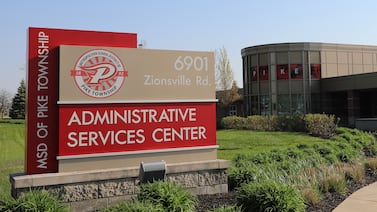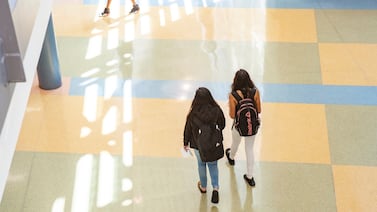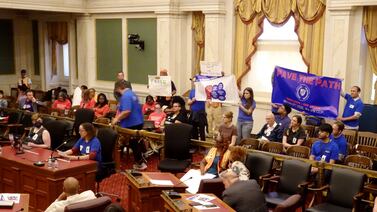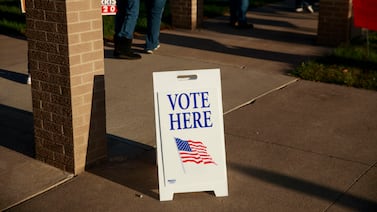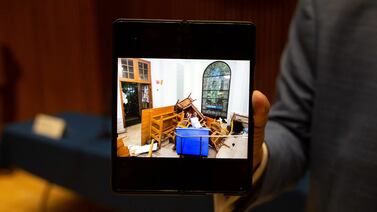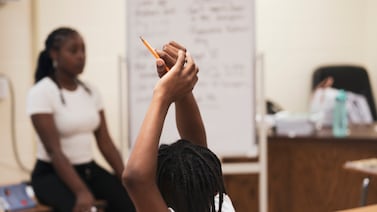Sign up for Chalkbeat New York’s free daily newsletter to keep up with NYC’s public schools.
A class action lawsuit seeking to fast-track makeup services for New York City students has once again survived the city’s legal efforts to quash it.
A federal district court judge, Andrew L. Carter Jr., initially dismissed the case in 2022. But even after an appeals court overturned that decision, city officials used a different legal maneuver to try to get the suit tossed. Carter ruled this week that the lawsuit can largely move forward.
The lawsuit — filed in November 2020 by the nonprofit group Advocates for Children — argued that thousands of children with disabilities missed out on key services after the city’s schools switched to virtual instruction. The city struggled to distribute functioning remote learning devices, leaving some students without consistent access to instruction or other support such as physical therapy, the suit claimed.
Under federal law, students with disabilities have a right to “compensatory services” if their schools don’t provide all of the specialized instruction or therapies listed on their Individualized Education Programs, or IEPs. But seeking those services can require families to file a formal complaint — and the system that oversees those claims in New York City is dysfunctional and beset by delays that often stretch hundreds of days beyond the 75-day legal limit. (The complaint system is under federal court supervision thanks to a different lawsuit.)
The goal of Advocates for Children’s lawsuit was to force the city to come up with a streamlined process outside of that backlogged system to award extra services for students with disabilities.
“We’re looking for something that’s not each parent fighting on their own for relief,” said Rebecca Shore, the litigation director at Advocates for Children. She said the current process is “costly and inequitable for families without attorneys.”
The case has faced years of legal setbacks and delays. Carter dismissed the lawsuit two years ago because the families involved in the litigation had not tried to first use the formal complaint process. “Plaintiffs must exhaust their claims before coming to federal court,” Carter wrote.
Advocates for Children challenged that decision and a federal appeals court ruled in 2023 that the case should not have been dismissed. But city officials once again tried to get the case tossed.
(In his ruling on Thursday, Carter also ruled that the state’s Education Department should no longer be a defendant in the case, writing that the original suit did not claim state officials were directly responsible for the lost services.)
A spokesperson for the city Law Department declined to comment on the decision. A city Education Department spokesperson did not immediately return a request for comment.
The city’s education department has provided some students with disabilities additional services to make up for pandemic disruptions. The department offered after-school and Saturday sessions to families, though the rollout was bumpy and many families did not participate.
Shore said her organization still regularly hears from families whose children missed out on services during the pandemic and would benefit from additional tutoring or other help.
The Education Department “can’t be absolved of their responsibility to make up the services that were lost,” she said.
One of the appeals court judges who reviewed the case said during a 2022 oral argument that cases like these are frustrating because they can take a long time to resolve but students need makeup services quickly.
If the case drags on for years, many students affected by the pandemic disruptions will have aged out of the school system and won’t ever get the services they missed out on, even if the lawsuit is ultimately successful.
Alex Zimmerman is a reporter for Chalkbeat New York, covering NYC public schools. Contact Alex at azimmerman@chalkbeat.org.



